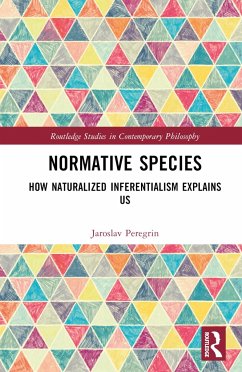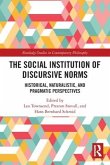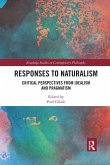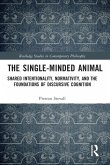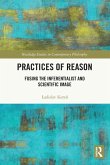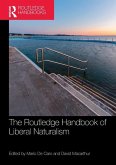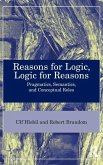This book is about rules, and especially about human capability to create, maintain and follow rules, as a root of what makes us humans different from other animals. The leading idea is that scrutinizing this capability is able to tell us who we humans are and what kinds of lives we live. It elaborates Wilfrid Sellars' visionary observation that "to say that man is a rational animal, is to say that man is a creature not of habits, but of rules"; and it builds on the ideas of Sellars' and Brandom's inferentialism, in a novel naturalistic way.
The main tenet of inferentialism is that our language games are essentially rule-governed and that meanings are inferential roles. Jaroslav Peregrin sees the task of reconciliation of inferentialism and naturalism as centered around the problem of naturalization of rules. He argues that the most primitive form of a rule is a cluster of normative attitudes. We humans are specific by our tendency to assume peculiar attitudes to what we do, and to do so in a specific way, which turns the attitudes into "normative" ones. This self-reflective structure characterizes our ability to build systems of interconnected rules, which have come to constitute our natural niche. Furthermore, Peregrin shows how our most important system of rules - that constitutive of our language - helped to lead us to our current position of rule-following, ultra-social, rational, and discursive creatures.
Normative Species will be of interest to scholars and advanced students working in philosophy of language, philosophy of mind, social ontology, cultural evolution and cognitive science.
The main tenet of inferentialism is that our language games are essentially rule-governed and that meanings are inferential roles. Jaroslav Peregrin sees the task of reconciliation of inferentialism and naturalism as centered around the problem of naturalization of rules. He argues that the most primitive form of a rule is a cluster of normative attitudes. We humans are specific by our tendency to assume peculiar attitudes to what we do, and to do so in a specific way, which turns the attitudes into "normative" ones. This self-reflective structure characterizes our ability to build systems of interconnected rules, which have come to constitute our natural niche. Furthermore, Peregrin shows how our most important system of rules - that constitutive of our language - helped to lead us to our current position of rule-following, ultra-social, rational, and discursive creatures.
Normative Species will be of interest to scholars and advanced students working in philosophy of language, philosophy of mind, social ontology, cultural evolution and cognitive science.

